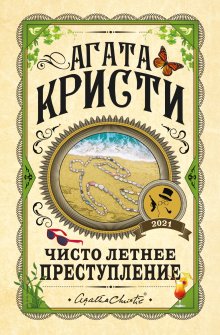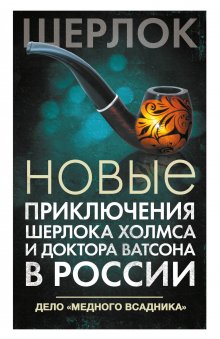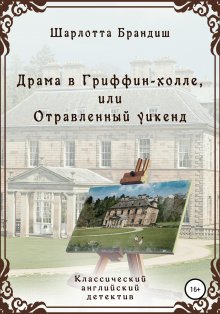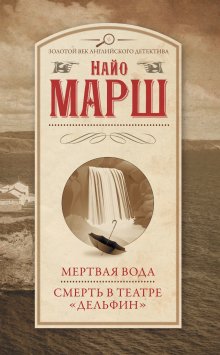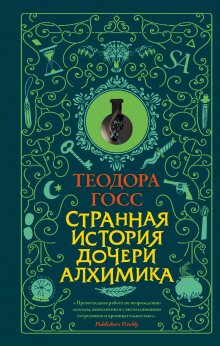Агата Кристи - The Murder of Roger Ackroyd / Убийство Роджера Экройда
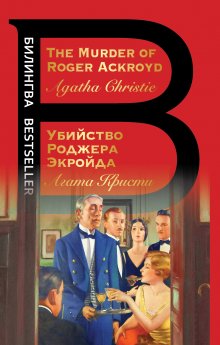
Все авторские права соблюдены. Напишите нам, если Вы не согласны.
Описание книги "The Murder of Roger Ackroyd / Убийство Роджера Экройда"
Описание и краткое содержание "The Murder of Roger Ackroyd / Убийство Роджера Экройда" читать бесплатно онлайн.
I think I can safely say that it was at this moment that a foreboding of the future first swept over me. Nothing tangible as yet – but a vague premonition of the way things were setting. That earnest tête-à-tête between ralph Paton and Mrs ferrars the day before struck me disagreeably.
I was still thinking of it when I came face to face with Roger Ackroyd.
‘Sheppard!’ he exclaimed. ‘Just the man I wanted to get hold of. This is a terrible business.’
‘You’ve heard then?’
He nodded. he had felt the blow keenly, I could see. his big red cheeks seemed to have fallen in, and he looked a positive wreck of his usual jolly, healthy self.
‘It’s worse than you know,’ he said quietly. ‘Look here, Sheppard, I’ve got to talk to you. can you come back with me now?’
‘hardly. I’ve got three patients to see still, and I must be back by twelve to see my surgery patients.’
‘Then this afternoon – no, better still, dine tonight. At 7.30. Will that suit you?’
‘Yes, I can manage that all right. What’s wrong? Is it Ralph?’
I hardly knew why I said that – except, perhaps, that it had so often been Ralph.
Ackroyd stared blankly at me as though he hardly understood. I began to realize that there must be something very wrong indeed somewhere. I had never seen Ackroyd so upset before.
‘Ralph?’ he said vaguely. ‘oh! no, it’s not Ralph. Ralph’s in London – damn! here’s old Miss gannett coming. I don’t want to have to talk to her about this ghastly business. See you tonight, Sheppard. Seven-thirty.’
I nodded, and he hurried away, leaving me wondering. ralph in London? But he had certainly been in king’s Abbot the preceding afternoon. he must have gone back to town last night or early this morning, and yet Ackroyd’s manner had conveyed quite a different impression. he had spoken as though ralph had not been near the place for months.
I had no time to puzzle the matter out further. Miss gannett was upon me, thirsting for information. Miss gannett has all the characteristics of my sister caroline, but she lacks that unerring aim in jumping to conclusions which lends a touch of greatness to caroline’s manoeuvres. Miss gannett was breathless and interrogatory.
Wasn’t it sad about poor dear Mrs Ferrars? A lot of people were saying she had been a confirmed drug-taker for years. So wicked the way people went about saying things. And yet, the worst of it was, there was usually a grain of truth somewhere in these wild statements. No smoke without fire! They were saying too that Mr Ackroyd had found out about it, and had broken off the engagement – because there was an engagement. She, Miss gannett, had proof positive of that. of course I must know all about it – doctors always did – but they never tell?
And all this with a sharp beady eye on me to see how I reacted to these suggestions.
Fortunately, long association with Caroline has led me to preserve an impassive countenance, and to be ready with small non-committal remarks. On this occasion I congratulated Miss Gannett on not joining in ill-natured gossip. Rather a neat counterattack, I thought. It left her in difficulties, and before she could pull herself together, I had passed on.
I went home thoughtful, to find several patients waiting for me in the surgery.
I had dismissed the last of them, as I thought, and was just contemplating a few minutes in the garden before lunch when I perceived one more patient waiting for me. She rose and came towards me as I stood somewhat surprised. I don’t know why I should have been, except that there is a suggestion of cast iron about Miss Russell, a something that is above the ills of the flesh.
Ackroyd’s housekeeper is a tall woman, handsome but forbidding in appearance. She has a stern eye, and lips that shut tightly, and I feel that if I were an under housemaid or a kitchenmaid I should run for my life whenever I heard her coming.
‘Good morning, dr Sheppard,’ said Miss Russell. ‘I should be much obliged if you would take a look at my knee.’
I took a look, but, truth to tell, I was very little wiser when I had done so. Miss Russell’s account of vague pains was so unconvincing that with a woman of less integrity of character I should have suspected a trumped-up tale. It did cross my mind for one moment that Miss Russell might have deliberately invented this affection of the knee in order to pump me on the subject of Mrs Ferrars’s death, but I soon saw that there, at least, I had misjudged her. She made a brief reference to the tragedy, nothing more. yet she certainly seemed disposed to linger and chat.
‘Well, thank you very much for this bottle of liniment, doctor,’ she said at last. ‘Not that I believe it will do the least good.’
I didn’t think it would either, but I protested in duty bound. After all, it couldn’t do any harm, and one must stick up for the tools of one’s trade.
‘I don’t believe in all these drugs,’ said Miss Russell, her eyes sweeping over my array of bottles disparagingly. ‘drugs do a lot of harm. Look at the cocaine habit.’
‘Well, as far as that goes-’
‘It’s very prevalent in high society.’
I’m sure Miss Russell knows far more about high society than I do. I didn’t attempt to argue with her.
‘Just tell me this, doctor,’ said Miss Russell. ‘Suppose you are really a slave of the drug habit, is there any cure?’
One cannot answer a question like that off-hand. I gave her a short lecture on the subject, and she listened with close attention. I still suspected her of seeking information about Mrs Ferrars.
‘Now, veronal, for instance-’ I proceeded.
But, strangely enough, she didn’t seem interested in veronal. Instead she changed the subject, and asked me if it was true that there were certain poisons so rare as to baffle detection.
‘Ah!’ I said. ‘you’ve been reading detective stories.’
She admitted that she had.
‘The essence of a detective story,’ I said, ‘is to have a rare poison – if possible something from South America, that nobody has ever heard of – something that one obscure tribe of savages use to poison their arrows with. death is instantaneous, and Western science is powerless to detect it. Is that the kind of thing you mean?’
‘Yes. Is there really such a thing?’
I shook my head regretfully.
‘I’m afraid there isn’t. There’s curare, of course.’
I told her a good deal about curare, but she seemed to have lost interest once more. She asked me if I had any in my poison cupboard, and when I replied in the negative I fancy I fell in her estimation.
I should never have suspected Miss Russell of a fondness for detective stories. It pleases me very much to think of her stepping out of the housekeeper’s room to rebuke a delinquent housemaid, and then returning to a comfortable perusal of The Mystery of the Seventh Death, or something of the kind.
Chapter 3
The Man Who Grew Vegetable Marrows
I told Caroline at lunch that I should be dining at Fernly. She expressed no objection – on the contrary.
‘Excellent,’ she said. ‘You’ll hear all about it. By the way, what is the trouble with Ralph?’
‘With Ralph?’ I said, surprised; ‘there isn’t any.’
‘Then why is he staying at the Three Boars instead of at Fernly Park?’
I did not for a minute question Caroline’s statement that Ralph Paton was staying at the local inn. That Caroline said so was enough for me.
‘Ackroyd told me he was in London,’ I said. In the surprise of the moment I departed from my valuable rule of never parting with information.
‘Oh!’ said Caroline. I could see her nose twitching as she worked on this.
‘He arrived at the Three Boars yesterday morning,’ she said. ‘And he’s still there. Last night he was out with a girl.’
That did not surprise me in the least. ralph, I should say, is out with a girl most nights of his life. But I did rather wonder that he chose to indulge in the pastime in king’s Abbot instead of in the gay Metropolis.
‘One of the barmaids?’ I asked.
‘No. That’s just it. he went out to meet her. I don’t know who she is.’ (Bitter for Caroline to have to admit such a thing.) ‘But I can guess,’ continued my indefatigable sister.
I waited patiently.
‘His cousin.’
‘Flora Ackroyd?’ I exclaimed in surprise.
Flora Ackroyd is, of course, no relation whatever really to Ralph Paton but Ralph has been looked upon for so long as practically Ackroyd’s own son, that cousinship is taken for granted.
‘Flora Ackroyd,’ said my sister.
‘But why not go to Fernly if he wanted to see her?’
‘Secretly engaged,’ said Caroline, with immense enjoyment. ‘Old Ackroyd won’t hear of it, and they have to meet this way.’
I saw a good many flaws in Caroline’s theory, but I forebore to point them out to her. An innocent remark about our new neighbour created a diversion.
The house next door, The Larches, has recently been taken by a stranger. To Caroline’s extreme annoyance, she has not been able to find out anything about him, except that he is a foreigner. The Intelligence corps has proved a broken reed. Presumably the man has milk and vegetables and joints of meat and occasional whitings just like everybody else, but none of the people who make it their business to supply these things seem to have acquired any information.
His name, apparently, is Mr Porrott – a name which conveys an odd feeling of unreality. The one thing we do know about him is that he is interested in the growing of vegetable marrows.
But that is certainly not the sort of information that Caroline is after. She wants to know where he comes from, what he does, whether he is married, what his wife was, or is, like, whether he has children, what his mother’s maiden name was – and so on.
Somebody very like Caroline must have invented the questions on passports, I think.
‘My dear Caroline,’ I said. ‘There’s no doubt at all about what the man’s profession has been. he’s a retired hairdresser. Look at that moustache of his.’
Caroline dissented. She said that if the man was a hairdresser, he would have wavy hair – not straight. All hairdressers did.
I cited several hairdressers personally known to me who had straight hair, but Caroline refused to be convinced.
‘I can’t make him out at all,’ she said in an aggrieved voice. ‘I borrowed some garden tools the other day, and he was most polite, but I couldn’t get anything out of him. I asked him point blank at last whether he was a frenchman, and he said he wasn’t – and, somehow, I didn’t like to ask him any more.’
I began to be more interested in our mysterious neighbour. A man who is capable of shutting up Caroline and sending her, like the Queen of Sheba, empty away, must be something of a personality.
‘I believe,’ said Caroline, ‘that he’s got one of those new vacuum cleaners – ’
I saw a meditated loan and the opportunity of further questioning gleaming from her eye. I saw the chance to escape into the garden. I am rather fond of gardening. I was busily exterminating dandelion roots when a shout of warning sounded from close by and a heavy body whizzed by my ears and fell at my feet with a repellent squelch. It was a vegetable marrow!
I looked up angrily. Over the wall, to my left, there appeared a face. An egg-shaped head, partially covered with suspiciously black hair, two immense moustaches, and a pair of watchful eyes. It was our mysterious neighbour, Mr Porrott.
He broke at once into fluent apologies.
‘I demand of you a thousand pardons, monsieur. I am without defence. For some months now I cultivate the marrows. This morning suddenly I enrage myself with these marrows. I send them to promenade themselves – alas! not only mentally but physically. I seize the biggest. I hurl him over the wall. Monsieur, I am ashamed. I prostrate myself.’
Before such profuse apologies, my anger was forced to melt. After all, the wretched vegetable hadn’t hit me. But I sincerely hoped that throwing large vegetables over walls was not our new friend’s hobby. Such a habit could hardly endear him to us as a neighbour.
The strange little man seemed to read my thoughts.
‘Ah! no,’ he exclaimed. ‘do not disquiet yourself. It is not with me a habit. But you can figure to yourself, monsieur, that a man may work towards a certain object, may labour and toil to attain a certain kind of leisure and occupation, and then find that, after all, he yearns for the old busy days, and the old occupations that he thought himself so glad to leave?’
‘Yes,’ I said slowly. ‘I fancy that that is a common enough occurrence. I myself am perhaps an instance. A year ago I came into a legacy – enough to enable me to realize a dream. I have always wanted to travel, to see the world. Well, that was a year ago, as I said, and – I am still here.’
My little neighbour nodded.
‘The chains of habit. We work to attain an object, and the object gained, we find that what we miss is the daily toil. And mark you, monsieur, my work was interesting work. The most interesting work there is in the world.’
‘Нes?’ I said encouragingly. for the moment the spirit of Сaroline was strong within me.
‘The study of human nature, monsieur!’
‘Just so,’ I said kindly.
Сlearly a retired hairdresser. Who knows the secrets of human nature better than a hairdresser?
‘Also, I had a friend – a friend who for many years never left my side. Occasionally of an imbecility to make one afraid, nevertheless he was very dear to me. figure to yourself that I miss even his stupidity. his naïveté, his honest outlook, the pleasure of delighting and surprising him by my superior gifts – all these I miss more than I can tell you.’
‘He died?’ I asked sympathetically.
‘Not so. he lives and flourishes – but on the other side of the world. He is now in the Argentine.’
‘In the Argentine,’ I said enviously.
I have always wanted to go to South America. I sighed, and then looked up to find Mr Porrott eyeing me sympathetically. he seemed an understanding little man.
‘Will you go there, yes?’ he asked.
‘I could have gone,’ I said. ‘A year ago. But I was foolish- and worse than foolish – greedy. I risked the substance for the shadow.’
‘I comprehend,’ said Mr Porrott. ‘You speculated?’
I nodded mournfully, but in spite of myself I felt secretly entertained. This ridiculous little man was so portentously solemn.
‘Not the Porcupine oilfields?’ he asked suddenly.
I stared.
‘I thought of them, as a matter of fact, but in the end I plumped for a gold mine in Western Australia.’
My neighbour was regarding me with a strange expression which I could not fathom.
Подписывайтесь на наши страницы в социальных сетях.
Будьте в курсе последних книжных новинок, комментируйте, обсуждайте. Мы ждём Вас!
Похожие книги на "The Murder of Roger Ackroyd / Убийство Роджера Экройда"
Книги похожие на "The Murder of Roger Ackroyd / Убийство Роджера Экройда" читать онлайн или скачать бесплатно полные версии.
Мы рекомендуем Вам зарегистрироваться либо войти на сайт под своим именем.
Отзывы о "Агата Кристи - The Murder of Roger Ackroyd / Убийство Роджера Экройда"
Отзывы читателей о книге "The Murder of Roger Ackroyd / Убийство Роджера Экройда", комментарии и мнения людей о произведении.






